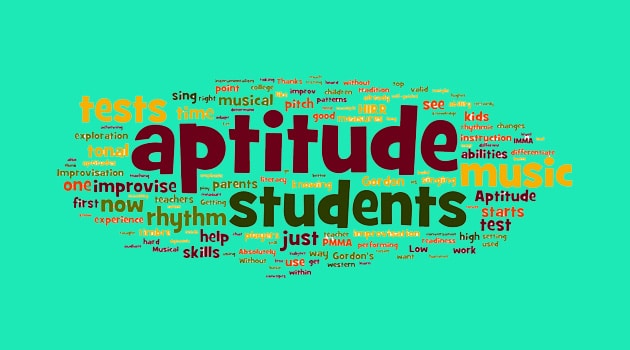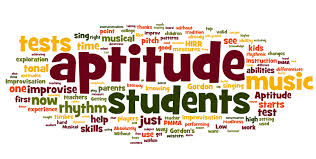Search results: 191
- Teacher: Dr. Sudhir Kumar Sharma [CSIT]
Category: Dr. Sudhir Kumar Sharma
- Teacher: Dr. Sudhir Kumar Sharma [CSIT]
Category: Dr. Sudhir Kumar Sharma
- Teacher: Dr. Sudhir Kumar Sharma [CSIT]
Category: Dr. Sudhir Kumar Sharma
KEC058 OPTICAL COMMUNICATION
COURSE OBJECTIVE:
1. To learn the basic elements of optical fiber transmission link, fiber modes configurations and structures.
2. To understand the different kind of losses, signal distortion, SM fibers.
3. To learn the various optical sources, materials and fiber splicing.
4. To learn the fiber optical receivers and noise performance in photo detector.
5. To learn link budget, WDM, solitons and SONET/SDH network.
Category: Mr. Mohit Tyagi
Pharmaceutics is the discipline of pharmacy that deals with the process of turning a new chemical entity (NCE) or old drugs into a medication to be used safely and effectively by patients. It is also called the science of dosage form design.

Category: Mr. Harsh Rastogi
Aptitude training for an MCA (Master of Computer Applications) course focuses on developing essential skills required for problem-solving, analytical thinking, and technical proficiency. Here’s a summary of the key components:
1. Quantitative Aptitude
Focus Areas:
- Number Systems: Basics of integers, fractions, decimals, and real numbers.
- Algebra: Equations, inequalities, and functions.
- Geometry: Properties of shapes, areas, volumes, and coordinate geometry.
- Arithmetic: Percentages, ratios, proportions, and basic calculations.
- Data Interpretation: Analyzing data from charts, tables, and graphs.
Training Resources:
- Books (e.g., R.S. Agarwal’s “Quantitative Aptitude”).
- Online practice platforms and quizzes.
2. Logical Reasoning
Focus Areas:
- Patterns and Sequences: Identifying and predicting patterns.
- Syllogisms: Logical reasoning and deduction.
- Puzzles and Brain Teasers: Problem-solving through logic.
- Critical Thinking: Evaluating arguments and reasoning.
Training Resources:
- Reasoning books (e.g., R.S. Agarwal’s “Logical Reasoning”).
- Online platforms and apps with practice exercises.
3. Verbal Ability
Focus Areas:
- Grammar: Rules of English grammar and usage.
- Vocabulary: Word meanings, synonyms, and antonyms.
- Comprehension: Reading passages and answering related questions.
- Critical Reasoning: Analyzing and interpreting written information.
Training Resources:
- Grammar and vocabulary books (e.g., “Word Power Made Easy” by Norman Lewis).
- Online grammar exercises and reading comprehension tools.
4. General Strategies
- Regular Practice: Consistent daily practice to improve skills.
- Mock Tests: Simulate exam conditions and assess performance.
- Study Groups: Collaborative learning and problem-solving.
- Time Management: Developing efficient problem-solving strategies.
This comprehensive approach to aptitude training helps MCA students develop a well-rounded skill set crucial for academic success and career opportunities in the tech industry.

Category: Manish Gupta
An Aptitude typically provides an overview of an individual's natural talents, skills, and abilities. Here’s a general outline of what aptitude might include:
Overview of Strengths:
- Problem-Solving Skills: Ability to analyze situations, identify issues, and develop effective solutions.
- Analytical Thinking: Capacity for understanding complex systems and concepts, and breaking them down into manageable parts.
- Technical Skills: Proficiency in specific tools, technologies, or methodologies relevant to a particular field.
- Creative Abilities: Talent for thinking outside the box, generating innovative ideas, and applying creative solutions to real life challenges.
Core Competencies:
- Numerical Aptitude: Strength in handling mathematical calculations, data analysis, and quantitative reasoning.
- Verbal Aptitude: Skill in understanding, interpreting, and conveying information through language, both written and spoken.
- Spatial Reasoning: Ability to understand and manipulate shapes, patterns, and spatial relationships.
Interpersonal Skills:
- Communication: Proficiency in articulating ideas clearly and effectively to diverse audiences.
- Teamwork: Ability to collaborate well with others, demonstrating leadership and supportive skills as needed.
- Emotional Intelligence: Capacity for understanding and managing one’s own emotions and those of others, enhancing interactions and decision-making.
Learning and Adaptability:
- Quick Learner: Ability to grasp new concepts and skills rapidly and effectively.
- Flexibility: Capacity to adapt to changing circumstances and work environments with ease.
Career-Related Aptitudes:
- Industry-Specific Skills: Expertise in areas relevant to a particular career or profession, such as software development, marketing strategies, or engineering principles.
Potential Areas for Growth:
- Skill Development: Areas where further training or practice could enhance capabilities.
- Experience Gaps: Aspects of the field where gaining more experience could be beneficial.
Aptitude can help you to guide in career decisions, educational pursuits, and personal development strategies.
Time management is a crucial component of aptitude that involves the ability to plan, prioritize, and execute tasks efficiently within a given timeframe. In the context of aptitude, time management play a very important role.
Effective time management enhances productivity, reduces stress, and improves overall performance by ensuring that tasks are completed efficiently and deadlines are met. It’s a vital skill in both personal and professional settings, and honing it can lead to significant improvements in achieving goals and maintaining balance.

Category: Manish Gupta
For campus placement, especially in competitive fields or companies, the aptitude requirements can be quite specific and rigorous. Here’s a breakdown of what you might need to focus on:
1. Technical Skills
- Domain Knowledge: Understanding of the specific field or industry you're applying to, whether it's engineering, finance, IT, etc.
- Coding and Programming: For tech-related roles, proficiency in programming languages and problem-solving skills are essential.
- Software Proficiency: Familiarity with relevant tools and software can be crucial depending on the job.
2. Aptitude Tests
- Quantitative Ability: Strong skills in mathematics, including algebra, calculus, statistics, and data interpretation.
- Logical Reasoning: Ability to solve puzzles, logical problems, and pattern recognition tasks.
- Verbal Ability: Proficiency in reading comprehension, grammar, and vocabulary.
3. Soft Skills
- Communication Skills: Both verbal and written communication are key, as they reflect your ability to articulate ideas and work effectively in teams.
- Problem-Solving Ability: Demonstrating critical thinking and problem-solving skills through practical examples or case studies.
- Teamwork and Leadership: Experiences and traits that showcase your ability to work well in teams and potentially lead projects or initiatives.
4. General Knowledge and Awareness
- Current Affairs: Awareness of current events, industry trends, and general knowledge that might be relevant to the role or company.
- Company Knowledge: Understanding the company’s history, products, services, and market position.
5. Interview Preparation
- Technical Interviews: Expect to solve problems, answer technical questions, and sometimes complete coding challenges or case studies.
- Behavioral Interviews: Be prepared to discuss past experiences, challenges, and accomplishments, and demonstrate how you fit with the company culture.
6. Additional Skills
- Project Management: Understanding of basic project management principles and tools might be necessary, especially for managerial roles.
- Presentation Skills: Ability to present ideas clearly and effectively, often demonstrated through presentations or group discussions.
Preparation Tips:
- Mock Tests: Take practice tests to get familiar with the types of questions asked and the format of the aptitude tests.
- Study Material: Use books, online courses, and other resources to strengthen your quantitative, logical, and verbal skills.
- Resume Building: Ensure your resume highlights relevant skills, experiences, and achievements that align with the job requirements.
Category: Manish Gupta
- Teacher: Ankita Sharma [MBA]
Category: Ankita Sharma
- Teacher: DR SANJEEV KUMAR [CSE]
- Teacher: Dr. Prakash Srivastava [CSE]
Category: Fourth Year
The "Sensor and Instrumentation" course covers the principles, design, and application of various sensors and instrumentation systems. Topics include sensor types, signal conditioning, data acquisition, and integration into measurement systems. Students learn to select appropriate sensors, understand their operating principles, and analyze data for applications in industries such as healthcare, environmental monitoring, and automation. Practical labs and projects provide hands-on experience in building and troubleshooting sensor-based systems, preparing students for real-world challenges in engineering and technology fields.
Category: Dr. Rajesh Yadav
- Teacher: Dr. Sudhir Kumar Sharma [CSIT]
Category: Ms. Arti Pandey
Category: Dr. Taru Maheshwari
This course aims at honing the communication, social and professional skills of the learners.
Category: Mr Himanshu saxena
Course Outcome:
Unit 1- Students will be able to converse well with effective LSRW skills in English.
Unit 2- Students will evaluate the importance of conversation in their personal and professional domain and apply it for extending their professional frontiers.
Unit 3- Students will learn to apply motivation skills for their individual and professional excellence. Unit 4- Students will utilize their teamwork and their interpersonal communication skills to survive and excel at their work-place.
Unit 5-Students will learn to evaluate creativity for their professional innovation and critical thinking for their
competence.
Category: Dr. Vipin Kumar Tyagi
Course Outcome:
Unit 1- Students will be able to converse well with effective LSRW skills in English.
Unit 2- Students will evaluate the importance of conversation in their personal and professional domain and apply it for extending their professional frontiers.
Unit 3- Students will learn to apply motivation skills for their individual and professional excellence. Unit 4- Students will utilize their teamwork and their interpersonal communication skills to survive and excel at their work-place.
Unit 5-Students will learn to evaluate creativity for their professional innovation and critical thinking for their competence.
Category: Dr. Babita Tyagi
- Teacher: Dr. Pushpa [CSIT]
- Teacher: GARIMA SINGH [CSIT]
- Teacher: Mr. Ambrish Gangal [CSIT]
- Teacher: Mr. Prince Kumar [CSIT]
- Teacher: Mr. Rohit Kumar Kaliyar [CSIT]
- Teacher: Mr. Vinay Kumar [CSIT]
- Teacher: Ms. Annu Dhankhar [CSIT]
- Teacher: Ms. Juhi Pruthi [CSIT]
- Teacher: Ms. Kanika Chauhan [CSIT]
- Teacher: Ms. Khushboo Pandey [CSIT]
- Teacher: Ms. Ritu [CSIT]
- Teacher: Ms. Shivangi Tyagi [CSIT]
Category: Mr. Ankit Kumar
- Teacher: MS HIMANSHI CHAUDHARY [CSE]
Category: DR MADHU GAUTAM
- Teacher: GAGAN THAKRAL [CSE]
Category: DR ANKUR BHARDWAJ
